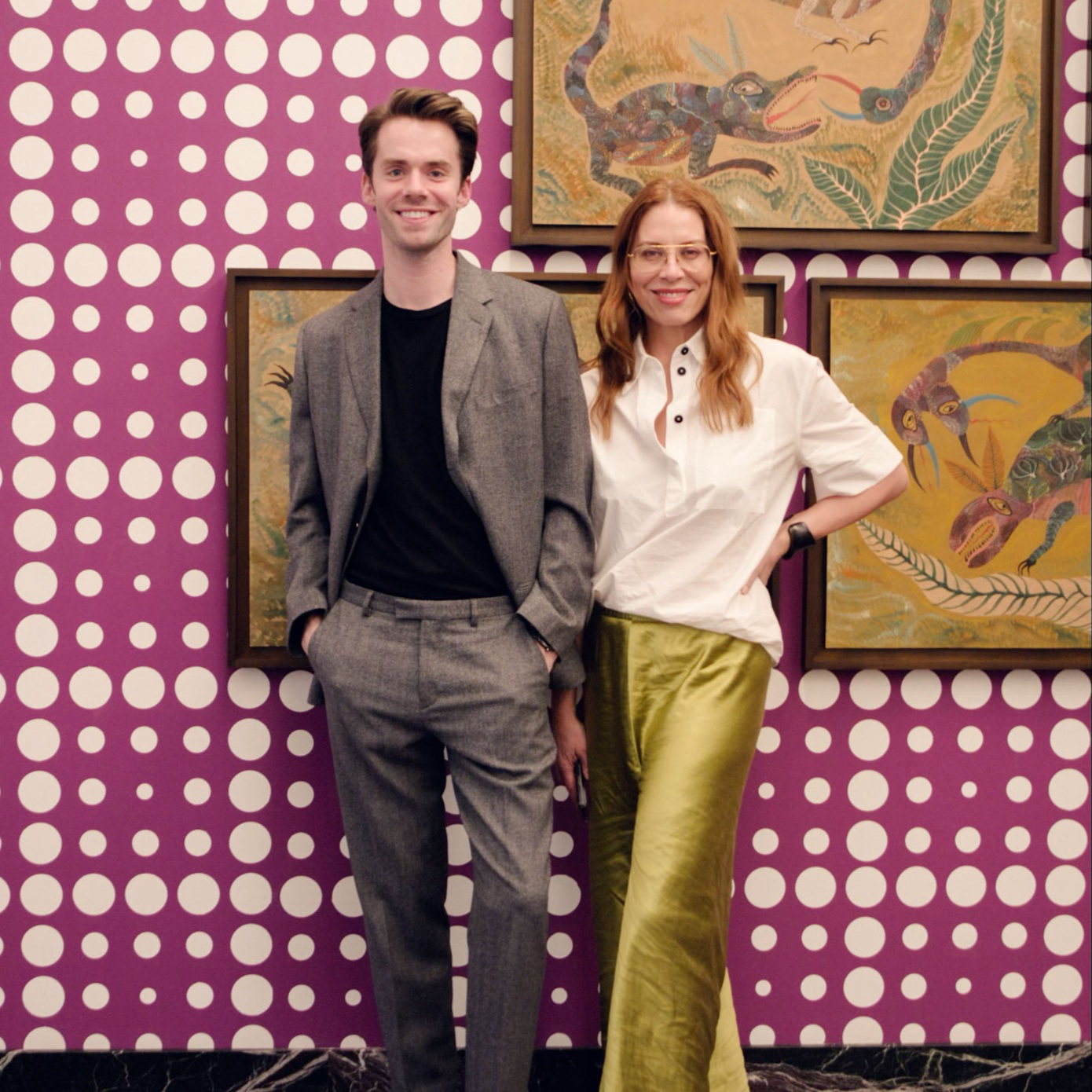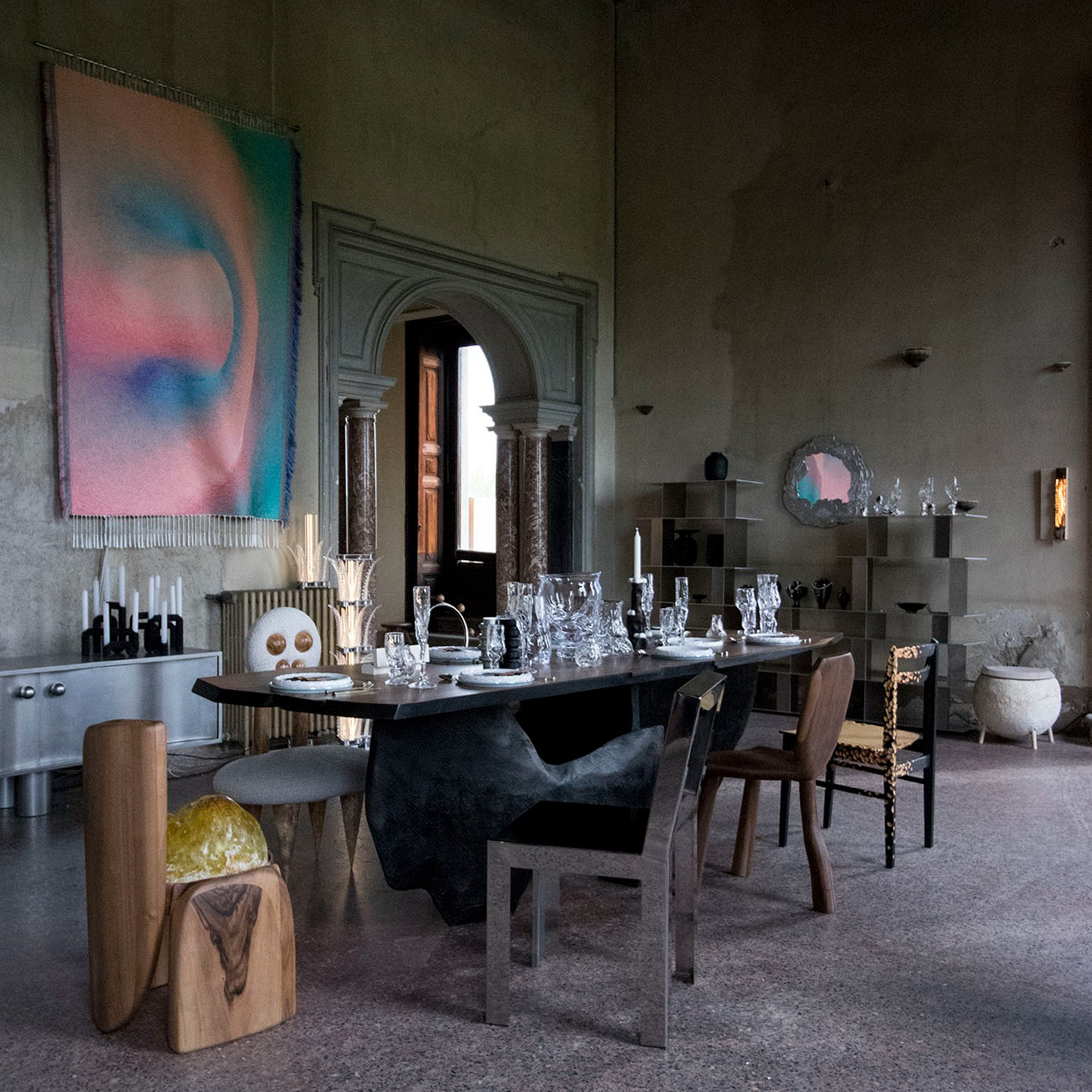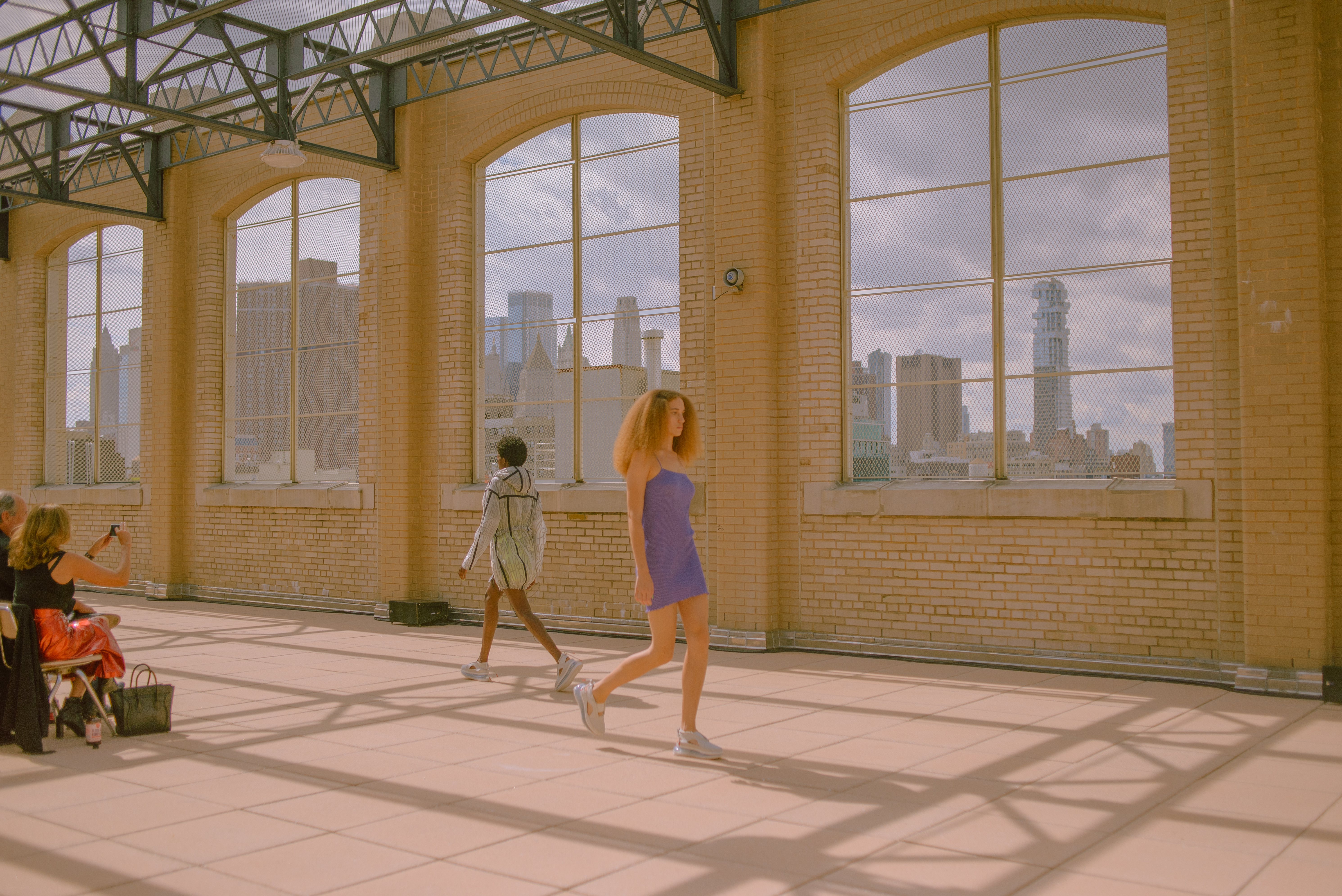
During an early fall meeting in her studio in New York City’s garment district, Prisca Vera Franchetti tells me that her first and foremost priority is to keep her business ventures “organic.” After all, her label literally carries her name, almost as if to remind the designer to look within to figure out what makes sense for her brand. So far, her methodology has proven successful. In an industry that sometimes feels forced and flexed, the designer credits the overall growth and success of her brand to this ethos of effortlessness and pragmatism. Although she doesn’t follow horoscopes closely, when I discovered she was a Taurus—an Earth zodiac sign—she laughed: “I heard they are stubborn, and I relate to that.”
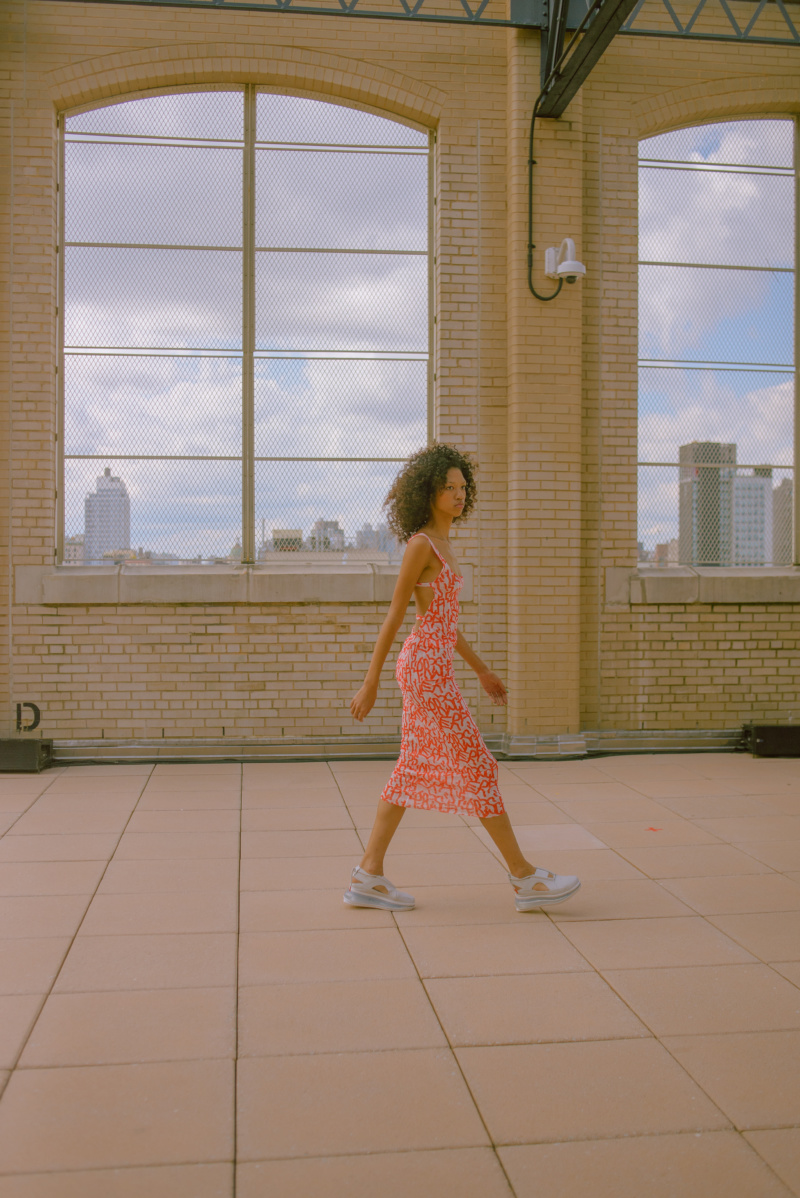
A native to Rome, Franchetti’s cosmopolitan upbringing provided the designer with much of the artistic framework she pulls from, but moving to New York was prompted by (arguably) the biggest of all inspirations—love. At the age of 21, she left Barcelona, where she had settled to study fashion design and add Spanish as a fourth language in her already-impressive repertoire. The motive to cross oceans may initially have been spurred by a boyfriend, but the decision to stay was purely intrinsic: New York suited her. In fact, it fit like a glove. In between gigs in the city (she’s worked for the French luxury fashion house Chloé and CFDA Member Zac Posen) and unbeknownst to the designer herself, Franchetti was setting the stage for the creation of her own label; Priscavera was born in 2015, a natural product of her incessant need to always be making something.
True to form, the first store that picked up her collection did so under consignment; she walked in towing garment bags in hand but with no real plan and walked out with a deal struck. (Franchetti seems to have been born with the kind of “what happens, happens” je ne sais quoi that we all wish we had.) Later came the support of Maryam Nassir Zadeh, who opened the doors to her showroom and store to represent the designer. Today, the list of retailers who have bought in includes the likes of Moda Operandi, H.Lorenzo, Farfetch, and Garmentory. Franchetti says she’ll never take a reference too seriously, nor will she elaborate too much on her season’s inspirations, as she likes to leave room her audience to form their own opinions and associations. These elusive citations will appear on garments and accessories as patterns created out of accidental misprints and warped lettering. Her creative flare comes from sources as whimsical as the Japanese arcade game Tekken 3 and as soberingly academic as Hieronymus Bosch’s Seven Deadly Sins, ca 1500.
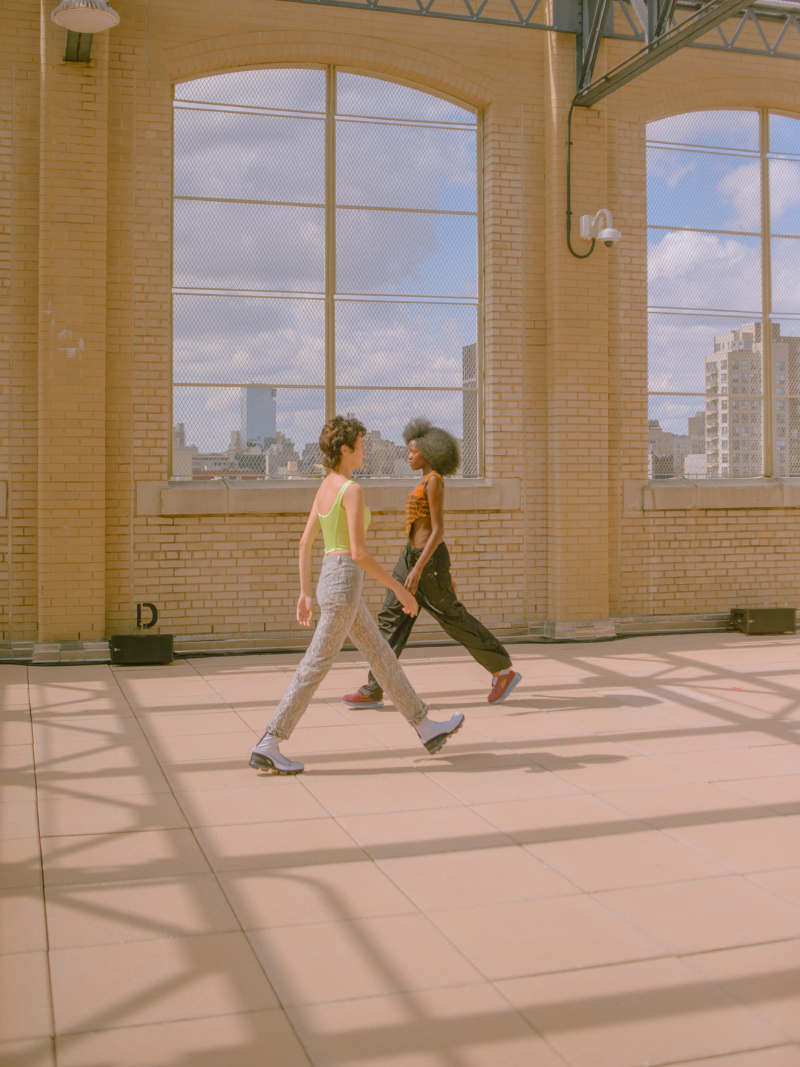
Five seasons of New York Fashion Week later and Franchetti has not lost focus on her brand’s cornerstone principle. The key to her success thus far? Humor with a dash of elegance. Priscavera’s easy glamour never feels pretentious, and Franchetti tries not to take her place in the industry too seriously. She’s certainly not above cracking a joke. You’ll see the designer’s wit at play in her Fall/Winter 2019 campaign images, shot in Val Gardena, Italy, where models hardly dressed for the Alpine weather pose with face-planted skiers in the snow, and in another photograph from her Fall/Winter 2018 campaign in which models in delicate frocks roundhouse-kick black-belt fighters in the face in what appears to be a martial arts studio. But, make no mistake, having a good time doesn’t compromise the quality of Franchetti’s bold and consistent output. Whatever she’s doing has worked so far, and her smartly constructed, luxe (and often technicolor) designs are frequently sported by the downtown fashion crowd.
“There’s a lot going on today that’s not fun. Dressing yourself and spending money to buy clothes isn’t one of those things,” she says with a smile, coyly selling her aspirational lifestyle. “Fashion is serious because it involves so much work, passion and energy, but the ultimate product—and our job as designers—is to make people have fun and make people feel good about themselves.” For Franchetti, if you’re not laughing, you’re not living.


